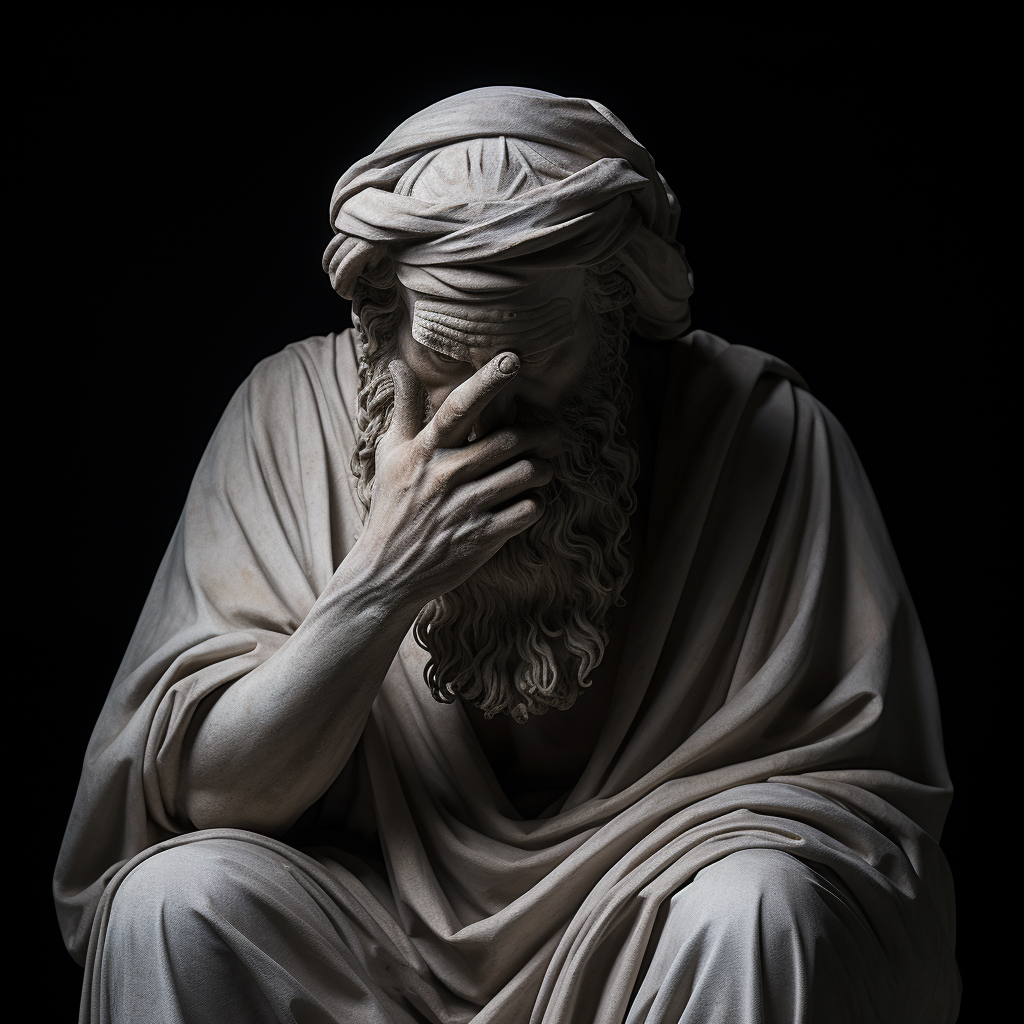A distributed pseudonymous ledger for use by a centralised authority that will hold sensitive, personal information.
I think the paper was right.
Spain did what
España creó un pasaporte blockchain para ver por alguna razón, porque supongo que los tiddies ponen nerviosas a algunas personas.
Source: Sé dónde está la biblioteca.
¿Qué?
This could be the right time to use an interrobang.
interrobang.
I know it’s a real thing, but I still think of a sexy FBI agent every time I see “interrobang”

I’ve never used one in my life, but I feel like it would have more impact in a language with writing rules such as Spanish’s.
And also the sexy agent thing.
⸘Que‽
If so, it was a lucky guess.
Por que: ¿Que?
me llamo t-bone la arana discoteca
Muy bien. Soy el langostino de los sueños.
Ahora esperemos que Porn Hub anuncie que no va a dar servicio en España como tantos estados Americanos que han hecho lo mismo.
Mi queso es su queso
Is it Blockchain based though?
It is a shitty porn passport, I’m Spanish, but I didn’t hear that it was Blockchain based.
Why? It needs a centrar register not an uncentralized one.
Yeah, I was just looking through some documentation on it. It says it uses a “digital wallet”. Maybe people are seeing that and thinking that means it’s blockchain-based? I’m not seeing anything more solid claiming there’s any blockchain involved, though. (I’m not 100% certain there isn’t any blockchain involved, though.)
It’s BS either way. Extra super plus plus BS if it’s blockchain-based. But still BS even if there’s no blockchain involved.
A blockchain does not mean decentralized. It means a public ledger where each new item validates the one(s) before it
Do they need blockchain for it though?
https://www.politico.eu/article/spain-builds-porn-passport-to-stop-kids-watching-smut/ I guess this? Wild stuff.
bit of a futile endeavour tbh, if a kid with access to the Internet wants to see porn, they’re going to find porn. And if they don’t have access to the basic sources they’ll probably find a more dodgy, unmoderated, and possibly extreme porn than if their curiosity got sated by pornhub or something
Agreed. Even going back to sharing stuff via Whatsapp or something like that, they are going to evade control for sure. But when will society be ready to just be honest with kids about what exists and teach them how to safely explore that and give them context? I guess we’d rather have dystopian control than that
Yeah, I’m not sure why so many adults try so desperately to forget what they were like as kids and teenagers. Rather than stop their biological urges, curb them or direct them towards safe release. Letting them figure it out on their own, and how else can they if you don’t actually teach them, is a recipe for disaster.
Two of the best ways to reduce teen pregnancy are sex education and easy access to contraceptives.
I’d wager the vast majority of us don’t actually give a shit what other people’s kids do on the internet, but also don’t have the energy to be an outspoken “free the porn” activist.
As long as they stay outta my voice chat.
When I was in middle school I had a kid who would pay me a dollar per picture to print out porn for him. Of course he got caught and told on me and his mom called my mom and I was just like “no, that’s impossible you put porn filters on the computer.”
So anyway, the moral of the story is that if you want to raise your kid to be a powerful STEM overlord, and a liar, and an entrepreneur - try to take away their porn.
And if they start looking in groups like that where you have up communicate with other people then that’s far worse and more dangerous than pornhub
This is the biggest problem; you’re basically funneling kids towards those sources least likely to comply with the law.
yup, precisely. This is the same story as trying to ban alcohol or drugs - people will find a way, and that way is going to put them at more risk than if those things were avaliable by legal means and properly regulated
VPN interest mysteriously surges in Spain
It is also mentioned that the rules could get superseded by EU law requiring identification as well. And with the US doing stupid stuff as well you might run out of VPN locations in the future
Yeah unfortunately it has crossed my mind. Good news is groups like Mullvad and Proton are pretty good about spreading their servers across the world under various jurisdictions so the whack a mole game should go on for quite some time, and I don’t think any country is going to make VPNs illegal anytime soon
I don’t think any country is going to make VPNs illegal anytime soon
They’ll just make them illegal for anyone other than a corporation
spoiler
asdfgasdfasfgasdg
Once verified, they’ll receive 30 generated “porn credits” with a one-month validity granting them access to adult content. Enthusiasts will be able to request extra credits.
…I’m sorry, what? Is the government keeping track of how much porn I use?
So they can raise a bronze statue to the biggest masturbator on town, of course.
deleted by creator
That’s the one I use for prison stuff right? You know spare key, toothbrush, razor, cellphone the basics so you still got room to spare.
Your prison wallet is closer to porn than to blockchain, I suppose.
Why would anyone chain their porn?
Cockchains are not for that. Not really for anything, but not for that too.What about all the games where you can shoot people? Why is that okay for kids, but a little tit here and there will destroy their view of the world?
Didn’t these things get their starts by sucking on tits? So why hide them now?
There is this famous spanish porn actor. Nacho vidal, who says that we would have a better world is kids would play around with plastic dildos instead of plastic guns.
I don’t know the playing with plastic dildos, but it is true how wild is the normalization of giving kids a replica of a human killing instrument to play with.
well you can’t have fun running around all summer squirting water at your friends from a dildo
at least, not without getting some truly vile looks from passersby
also it’s just intrinsically fun to try to shoot each other with harmless little darts that let you know you’ve been hit but not do anything else
well you can’t have fun running around all summer squirting water at your friends from a dildo
Speak for your fucking self
If some company made a plastic dick that squirts water, kids would be enthralled. They wouldn’t even think it was anything sexual; as far as they’re concerned they’d all just be shooting pee at each other.
deleted by creator
And you think the solution to that is to force me to use a government porn tracking service?
How about you be responsible for your kids, and I’ll be responsible for mine. I do not care what your kids do on the internet.
Until your daughter comes home with a boyfriend with a fucked up sense of what sex is and ruins her day/week/month/year/life.
I’m certainly not pro government tracking anything I do, let alone porn watching, but if I see how my own kids get exposed to it through friends. No matter how much I try to educate them, friends still show them absolute vile stuff…
Well the idea is to raise my kids not to be sexually repressed so they don’t latch on to the first thing which shows them the smallest modicum of sexual attention.
They are free to make their own mistakes. Hopefully they learn from them. If they don’t then it is what it is. I’m not here to dismantle the western framework of individual liberty for the misguided idea that it will prevent kids from having bad sex.
Fair enough. I’m raising my kids in a similar fashion. I dislike the sexual repression in the west (from which I unconsciously still suffer). But I’m still worried about other boys :)
Let’s pair it with proper sex ed. Destigmatise sex work, break the taboos, but also teach people what is and isn’t okay or healthy, how arousal works for different sexes and why their dick isn’t God’s gift to womankind.
I used to suck dick for blockcain…still do… but I used to too
Miss you, Mitch.
My fake plants died because I did not pretend to water them.
One of the things blockchain could do is become a digital proof of ownership, augmenting or replacing things like property deeds and car titles. We already agree that a written record of ownership of such things is legally binding (even if the writing is stored digitally), but transfer of that ownership to another person is still a very manual process. Imagine an NFT that represents ownership of your house, and when you want to sell your house, you transfer that NFT to someone else’s custody - adding their ownership information to it. It would record the entire chain of ownership, and specific details about the piece of property involved.
Without law enforcement, which is centralized anyway, your documented ownership is worthless. So if the state or a similar centralized real life organization, whiches existence people agree on, is needed to grant and enforce that ownership, blockchain is unnecessary. They can instead just store that shit in a database.
And who would the largest nodes on that blockchain be? The banks? Who could say and do whatever they conspired since they command >50% of the computing power and/or value?
The average person isn’t going to build a fucking blockchain node just to keep the deed to their house.
“Grandma, please you need to fill your basement with these ASICs or else script kiddies will steal your house”
That’s not how that works.
NFT is issued determining ownership to a property. Property sells, another NFT is issued, tied to the original one to maintain a chain of ownership. Issuance of a second NFT for a sale to a new owner would depend on authorization by the previous NFT holder. Lienholder information could also be stored, and linked to a mortgage NFT with payment history.
The “NF” part of that stands for “non-fungible.” As in, once created, cannot be changed.
What happens if a mistake was made and an NFT is erroneously issued (for example to the wrong person)?
What happens if the owner dies? How is the NFT transferred then?
Who checks that the original NFT was issued correctly?
What about properties that are split? What happens if the split isn’t represented in the NFT correctly (e.g. due to an error)?
The whole non-fungible part can be a problem, not a solution. It very, very rarely happens that ownership of a property is contested. It happens quite often that a mistake is made during a property transfer/sale that needs to be corrected. How do NFTs deal with this, and are they a solution to a non-issue?
What happens if a mistake was made and an NFT is erroneously issued (for example to the wrong person)?
That person has it now. They mjght volountarily be willing to send it back with another transactions or the courts could force them to do so (as in give fines, request keys, send to prison, or just have the government own and ooerate all the wallet keys and simulate transactions eith blockchain just as the technology used in a very janky way)
What happens if the owner dies? How is the NFT transferred then?
Similarily, either the government does all the transactions with ‘your’ keys for you, or you write down the keys in your will and have someone of trust (e.g. a lawyer) do the partitioning/transactions part in your stead.
Who checks that the original NFT was issued correctly?
The seller and buyer beforehand, mostly
What about properties that are split? What happens if the split isn’t represented in the NFT correctly (e.g. due to an error)?
Rebalance by having everone affected send their portions for redistribution to a trusted entity
As you’ve said yourself, NFTs seem wholly unsuited for keeping track of general ownership on a large scale. All the problems do have solutions, but they’re either complicated for the owners or it’s someone else controlling people’s keys, defeating the entire point.
See that’s the thing. Not being able to correct transaction errors is a feature of blockchain. I’d go as far as saying it’s the #1 feature of the majority of crypto that brings in all the scammers.
Personally I prefer my money being insured and controlled by the government.
It could. It may or may not. I agree decentralization is a good thing, but do governments agree as well? First of all, governments are very resistant to change if that doesn’t play into their interests (real or percieved like this privacy violation). Using a traditional database to keep track of ownership seems cheaper (since they already do it) but most of all simpler. I’m not too familiar with the way blockchain functions so I may be wrong, but say someone wants to sell a car. In the current state of most countries you just draw up a paper or fill out a form, maybe get it notarized and pay taxes. A database seems flexible enough that if your sale didn’t get logged and the buyer got pulled over and questioned, they could provide the contract and clear up any questions about ownership. Or say the ownership was stripped as part of a court order. If it was a database, then changing the records is simple, but with blockchain the court would either have to get you to transfer the ownership volountarily, force you to disclose your keys or have some mechnism of forcing a transaction from the requester account (which as I understand it seems what blockchain is here to stop abd a core part of the specification). Alternatively the government just uses blockchain instead of a database, managing all the keys, wallets and identities (as in they have everyone’s keys and do all the transactions) which is the same level of centralization as a database, but with extra steps.
Ownership was (and is) a social contract, and a flexible one at that. Things get gifted volountarily, sold, taken away lawfully and inherited in a single jurisdiction by the thousands daily, and not all of these are well documented. Blockchain seems very limited in what it can do flexibility-wise which makes it unsuitable for keeping track of ownership, and that’s not taking into account that either everyone would have to actively use the blockchain for their sales and be familiar with the technology (decentralized) or having all the wallet keys operated by the government (defeating any useful feature of the blockchain for citizens). Adding blockchain into the mix will just complicate the transfer process and centralize it (as in we either do all validation on the blockchain or none), and with the fact that all the transfer history is centralised in the blockchain (despite it being decentralised in storage, it’s still explicitly stored and accessible) it would serve as just another venue of privacy violation and opression.
Maybe blockchain could be useful for things like, say carbon credits, or similar government-issued ‘currency’, but I don’t see it applicable to validating general ownership on a large scale for the general population, ever. The ‘digital Euro’ proposal, also being blessed by the buzzword Blockchain seems very distopian to me as well. Here, with currency being used I can see how it would be applicable in the real world (instead of heavily unstandardised land deeds, sales contracts and other proofs of ownership you have strictly defined currency units), but this also seems like a gross privacy violation as the government (and maybe anyone) can see where you got your money and where you’re spending it down to the cent.
Oh no Spain has an “innovative” idea to fuck the internet!
I wonder how many sites will bother checking for Spanish pornpasses. Seems they’re just playing people and waiting for the inevitable, “Turns out the Internet isn’t respecting our kids, we need to ratchet up the control. We tried to give you a good deal though, right?”
That’s the insidious part of all this - the government will set up captive portals which require you to verify yourself to get outside the federal network. It will start with porn, then it will be VPNs, and so on. This is just a very convenient excuse to establish the infrastructure and process framework which will eventually be used to kill the open internet by a million cuts.
Most will just block themselves there like pornhub does in the states that require checking IDs in the US.
They will not have to
One of those memes where an article or something is needed for context lol
Spanish government is implementing a sort of passport for people to be able to view porn.
They want that any porn website sited in Spain would ask any visitor for credentials to enter, thus assuring it’s over 18 yo.
We call it the “pajaporte”.
Git is a real-life use-case
One of the crucial differences between blockchain and Git is that Git is fully subserviant to humans and anything can be undone by humans.
If your blockchain house title is stolen by a hacker, either the courts (rightfully) aren’t going to put any significance on the state of the blockchain and are going to say “yeah, you still own your house” (in which case what was the point of using blockchain in the first place rather than a SQL database or some such where mistakes and problems and fraud can be undone without cryptographically-hard obstacles in the way) or if in this hypothetical the Libertarian dystopia has progressed to cartoonish extremes, you’re just SOL and lost your house, which just isn’t even remotely realistic.
Git is not a blockchain. Most importantly, it’s not distributed. There’s a singular git server that all git clients for that repository connect to and use as a source of truth.
Git was built specifically to avoid the necessity to have one authoritative server.
https://git-scm.com/book/en/v2/Distributed-Git-Distributed-Workflows
In contrast with Centralized Version Control Systems (CVCSs), the distributed nature of Git allows you to be far more flexible in how developers collaborate on projects. In centralized systems, every developer is a node working more or less equally with a central hub. In Git, however, every developer is potentially both a node and a hub; that is, every developer can both contribute code to other repositories and maintain a public repository on which others can base their work and which they can contribute to.
That is patently false. It was developed to help develop the Linux kernel, which famously has multiple decentralized repositories managed by different maintainers.
The fact that most companies use it in a way you describe, with only one central repository, does not mean that git is not distributed.
I agree it’s not a blockchain, (although it has chain properties) but it is kinda decentralized. By convention projects almost exclusively have a single remote, and by convention that single remote is treated as an ultimate source-of-truth… But you can absolutely have the same repo with multiple remotes defined, and one could establish different schemes to determine which branches on which remotes represent what in terms of “truth”.
I’ve pulled code branches between my computers without publishing to an external server plenty of times. It’s a really useful feature to be able to keep stuff in sync with a version history.
Counterpoint: it is a chain and there absolutely is not one server.
For each project there is one authoritative instance, one “server” that everyone pushes to. Otherwise you get chaos.
That’s not a git thing though. You can totally have multiple remotes and the remotes are just git repositories themselves. Git is 100% decentralized. There is technically nothing stopping you from having multiple remotes.
That may be how you use it, but that’s not baked into git. See my previous response. There’s a bunch of FUD in this thread for some reason.
People want simple answers, and “blockchain bad” seems to satisfy many
And nobody ever forked a project, and lived happily ever after, then end.
If you want to work with the original project, you have to push to the server that controls the original project.
No you don’t, you can just fork it, add a commit, and walk away, and everyone can decide which one they want to clone
Otherwise you get git. You’re describing svn.
The Blockchain is amazingly useful, that’s why the establishment did their best to make sure people associate with incels and little monkey pictures to ruin its credibility. A banking system running on Blockchain is one where the Pentagon can’t lose trillions of dollars annually.
A banking system running on Blockchain
Is an astronomically terrible idea. It:
- would use as much electricity as an entire country
- payments/transfers would be both much slower AND much more expensive than via a bank
- would have no protection against fraud. You got scammed? Your money’s gone. You paid for something online and it never arrived? Too bad
- would have no way to stop money laundering
- would have no way to help people who forgot their password, they’d just lose their life savings permanently
- would tie up a bunch of capital, preventing reinvestment and growth. There would be no way to get a bank loan to buy a house for example
- the list goes on
Relative point to point
- which Blockchain are we talking here? How does it compare to the current banking infrastructure?
- again, which one? How does it compare to the current pricing?
- escrow is a thing, someone can build up a PayPal equivalent on top of a Blockchain, the list goes on
- the current system doesn’t do great here, some Blockchains makes it way more traceable, in fact
- skill issue, but also solvable with a PayPal equivalent
- not a fact, what does this even mean?
- does it?
You could say the Linux kernel is an astronomically terrible idea because it doesn’t do anything…but it is just the platform, the good comes from what people build on top of it that add all these quality of life features you miss
Buy ydy
Just to elaborate here. You are describing one implementation of a blockchain that provides a cryptocurrency. Blockchain is literally just another form of a database. It’s just that it can contain traits that would allow the database to be shared and distributed unlike typical databases. Currently there are some companies that are utilizing blockchain for their inventory systems. They aren’t using any more energy than they would with a typical system. They are just doing it to keep an unchanging record of past transactions which helps with fraud and loss prevention.
P.S. Money laundering using a system that is publicly distributed and has every transaction involving usd paired with an ID, social security number and enough pictures of your face to make a 3D model is genuinely idiotic.
All your points are about an obsolete idea of Bitcoin, a PoW public blockchain. A PoS private blockchain with private keys not handled by the users would invalidate your entire list.
You mean PoS, which feature is literally that the more you have, the more you can stake, and the more you can earn in return? So basically the system that has built-in wealth concentration?
Yes, but if we are talking about a private permissioned blockchain, there’s no need to obtain returns from staking. It can be even a Proof of Authority tokenless network for what banking care.
Banks are already paying for servers to process and store information. A few validators or collators (quite cheap for a private network) provided by several banks would cost a fraction of what they pay now and they’ll keep owning the data, they could reverse transactions, be covered by several layers of public encryption, guard the user’s wallet/login, etc.
Don’t mix blockchain with the speculative world built on top of it. That’s only an unfortunate use of the technology.
Banks are already paying for servers to process and store information.
Yes
A few validators or collators (quite cheap for a private network) provided by several banks would cost a fraction of what they pay now
How? They’d be doing extra compute work for no reason (validating already valid transactions), and storing extra data (lots of hashes) for no reason, so it can only make infra costs more expensive. Plus the added complexity meaning you have to hire an extra team just to understand it.
Don’t mix blockchain with the speculative world built on top of it. That’s only an unfortunate use of the technology.
That speculative world as shitty as it is, is the only proven use case of the technology, if you take that away then blockchains are even less useful
PoS centralizes the authority to whoever is richest. That’s literally worse than how paper currency with semi corrupt government works.
The PoS option was to highlight that power consumption doesn’t have to be an issue. Of course, PoS has its own issues.
The network can use any other type of proof, like Proof of Authority where only a buch of validators owned by the banking system can process the transactions. The network can be even tokenless, no profit or incentives from it, just the secure architecture.
All my points? That’s a bit rich
You make a good point that PoS would solve one of the issues I raised which is electricity usage.
In theory it could also increase throughput and reduce costs, but: a) in practice that hasn’t happened yet despite years of development, b) it’s never going to be as efficient as a centralised system because of the extra overheads necessary to decentralise it, so that point still stands
All my other points still stand as well, plus the additional problems PoS creates to do with centralisation of power
The keyword is “private.” The redundant system all the banks maintain can be reduced to a private, permissioned blockchain, creating a network for the banking system to handle their own transactions in addition to a seamless inter-bank communication.
I doubt a network for just one bank can be that useful compared to the current situation.
Also, I’d say that every bank has (had?) a team researching the blockchain.
payments/transfers would be both much slower AND much more expensive than via a bank
Not necessarily. You could have a federated system, where only big players like banks participate in larger blockchain, like banks already do with forex and wire transfers and pay ridiculous fees to clearing agencies, and clear out local transfers locally, possibly inside their own smaller and much faster blockchain.
You seem to have conflated blockchain technology with cryptocurrency. Most cryptocurrencies use blockchain technology, but that’s not it’s only use case. Literally every problem you have listed relates to crypto and not blockchain itself. Blockchain is just a ledger of transactions. A private company using it to say, keep track of their inventory, or track their payments, or use it for document control, can implement it however they want.
Ok so firstly you’re not the OP I was replying to, so neither of us know for certain whether they were talking about replacing the banking system with a decentralised currency vs keeping the existing centralised private banks and just having them use a blockchain as their database. I assumed the former because of their wording (“replace the banking system”), and because the latter offers no advantages that I know of.
Secondly if you think a blockchain would offer some advantages over other more efficient write only databases, I’d be interested to know what those are, because to me if you’re not running a decentralised system then you’re only getting the downsides of blockchain (such as it being single threaded, slow, and space inefficient) without any of the upsides.
For some background, I’m well aware of how both blockchains and crypto work, having been obsessed with them for a little while in 5 or 6 years ago like many of us were before becoming disillusioned. I’ve also got professional experience as a developer on both immutable databases and banking ledgers.
Bitcoin only consumes the energy people put in it. It literaly would adjust to only consume 20W if that’s what was available. But that also means it can absord an infinite amount of excess energy if necessary
make sure people associate with incels and little monkey pictures to ruin its credibility
yall 100% did that to yourselves
Y’all?
Ah yes, let’s just make everyone’s financial transactions public record. That couldn’t possibly be an insanely dangerous thing to do.
Hmm I don’t think that’s necessarily what OP is proposing. There are cryptos where transactions are anonymous.
How are they going to implement it, I guess by linking your identity to your porn-blockchain key.
I guess there’s no better way to track your habits.



















